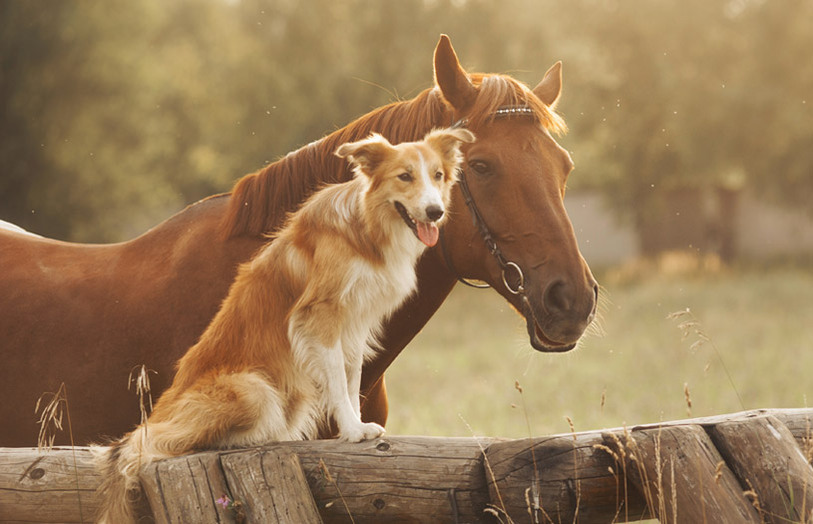
Are You & Your Horse Ready For Bitting Advice? The Steps You Need To Consider First
Equestrian Advice & Guides All Disciplines
Build your business profile for FREE and expose your services to thousands of potential clients!
Create my profile now!
The one thing that’s clear is that the best action we can currently take towards reducing the spread of coronavirus is to stay at home and wash our hands regularly.
You can find the latest, up to date information about the current government guidelines here > https://www.gov.uk/coronavirus
But what seems to be less clear is how pet owners and livestock keepers are supposed to maintain the health and welfare of their animals during this time.
So we’ve answered some pressing questions, currently being asked by the nation.
Can animals carry or transmit COVID-19?
There is no evidence to suggest that COVID-19 can be carried or transmitted to a human by any animal, be it household pets or otherwise. However, it is sensible to follow the general advice given and make sure to wash your hands, before and after contact with any animal.
Can I take my animal to the vets/farriers?
All non-essential trips to the vets, or otherwise, should be avoided at all costs. However, if your animal needs urgent treatment for something that is either life-threatening or cannot wait due to severely impacting the animal’s welfare or comfort, you must call the vets or farriers beforehand and ask for guidance on the best way to approach your visit.
If you do have to attend the vets or farriers, social distancing guidelines should be followed at all times, keeping more than 2 meters away from your vet or farrier, and both parties should wash their hands thoroughly before and after contact with your animal.
More extensive advice on the use of vets can be found on the British Veterinary Association (BVA) site here > https://www.bva.co.uk/news-and-blog/news-article/coronavirus-disease-covid-19-updates-for-the-veterinary-profession/
The current advice on use of farriers can be found on the British Equestrian Federation (BEF) here > https://www.bef.co.uk/News-Detail.aspx?news=farrier-update-covid-19
What contact can I have with my horse...
...If I am ill?
If you have been diagnosed with, or are displaying symptoms of coronavirus, and have a horse in livery, you should be self-isolating (for at least 7 days, or 14 as a household) and therefore should not visit your horse during this time. You should instead contact your yard owner or vet to arrange suitable care for their welfare. Where it isn’t possible for these parties to care for your horse, you should try to arrange for someone else whose horse is in the same livery to provide care for your horse during your period of self-isolation.
...If I am well?
If you, and the members of your household, are not currently displaying symptoms of coronavirus, you can leave your house once a day for exercise and you should combine this with providing care for your horse.
Again, whilst doing so, you should limit your time outside to what’s ‘essential’ and keep at least 2 meters away from other people and animals.
Can I ride?
Whether you are well or not, the latest advice on riding your horse during lockdown is that it would be better not to. As there is always a risk involved with riding, in the unfortunate event that you were to need medical attention after an accident, the response of the emergency services may currently be much slower. On top of that, it is important that we do all we can to reduce the strain on the NHS, so it is advisable not to ride at all during this time.
More extensive information about how to care for your horse during the outbreak can be found in our article ‘Caring For Your Horses During The COVID-19 Lockdown’ here > https://www.horsemart.co.uk/community/article/caring-for-your-horses-during-the-covid-19-lockdown
Can I care for my livestock...
...If I’m ill?
If you have livestock, such as sheep, cattle, goats, pigs, poultry, or any other types of livestock, and you have been diagnosed with, or are showing symptoms of coronavirus, you should try to arrange for someone else to care for your animals.
If this is not possible you should ensure the basic needs of your animals are met, spending as little time outside the home as possible, remaining at least 2 meters away from anyone else, and ensure you wash your hands before and after handling your animals.
If you are too unwell to care for your animals and you cannot arrange care by someone else, you can call the Animal and Plant Health Agency (APHA) or your local authority to discuss emergency arrangements.
...If I’m well?
If you, and any members of your household, are not currently displaying symptoms of coronavirus, then you should combine your one daily outing for exercise with caring for your livestock.
Again, while tending to your animals, you should ensure you stay at least 2 meters away from anyone else and wash your hands before and after contact with your animals, keeping hands away from your eyes, nose and mouth until you have done so.
Is it still safe to pet my dog?
While there’s no evidence of dogs being able to transmit the virus to humans, there is also very little known about how long the virus could live on your dog’s fur if touched by someone carrying the virus. It is therefore advisable to wash your hands before and after contact with them and minimise petting, where possible. It is also sensible to prevent other people from touching your dog whilst on walks, keep them on a lead in public spaces, and even to try and exercise them in places that are likely to be free of people.
Can I walk my dog...
...If I am ill?
If you have been diagnosed with, or are displaying symptoms of coronavirus, then you need to self-isolate for 7 days, or 14 days as a household. This will mean you aren’t able to walk your dog yourself, so you’ll need to ask someone outside of your household to walk your dog for you.
The same goes for those vulnerable or at risk. We suggest asking someone else to do daily dog walks for you.
When asking someone else to walk your dog you should still be following the social distancing guidelines. Keep at least 2 meters away from other people and animals, making sure to do the same when picking up the dog from its owner and handing it back afterwards. Make sure to wash your hands before and after the walk.
If you’re self-isolating, you can find out more information on keeping your dogs happy and active on the Dogs Trust site here > https://www.dogstrust.org.uk/news-events/news/2020/advice-for-dog-owners-who-need-to-self-isolate-and-stay-at-home
...If I am well?
If you appear to be fit and well, and are not showing any symptoms of coronavirus, then you may walk your dog once a day, in accordance with the government’s guidelines on one daily outing to exercise. You should minimise the amount of time you spend outside to only what is absolutely necessary for the wellbeing of your dog, and keep at least 2 meters away from other people and animals.
It was reported in the media that a cat caught COVID-19 from its owner... is this true and should I be worried about giving it to my cat?
There was a report in Belgium recently that stated that a cat owned by a woman with coronavirus developed symptoms that included vomiting, diarrhoea and breathing problems, and a type of coronavirus was detected in the cat’s faeces and vomit. This could potentially be the first case of human to cat transmission, but if so, it is extremely rare and there is still no evidence at all that cats could transmit the virus to humans, so it’s important for cat owners not to worry unnecessarily.
Is it still safe to pet my cat?
While there’s no evidence of cats actively carrying the virus to humans, it makes sense to wash your hands before and after contact with them (where possible), as so little is currently known about how long the virus can live on something like a cat’s fur, so you can’t be sure that someone else hasn’t touched their fur while they were outside. It is therefore also advisable not to touch anyone else’s cat while out and about in the street, and refrain from letting other people’s cats into your home.
Should I be keeping my cat inside...
...If I am ill?
If you have been diagnosed with, or are displaying symptoms of coronavirus, it is advisable not to allow your cat to spend too much time outside. If they are happy to be kept indoors then this is probably best. Make sure you keep them entertained, as daily activity is crucial to their health and wellbeing, but try to do so with minimal contact with their fur or saliva.
...If I am well?
If you are currently well but fall into the vulnerable category as stated by the government, have underlying health conditions or are self-isolating as a preventative measure, then we advise to take the same action as those who are currently ill (advice above).
However, if you appear to be fit and well in all respects then there’s no reason to keep your cat inside. We still advise washing hands regularly before and after contact with your cat and keeping petting to a minimum if possible.
If your cat is an indoor kitty anyway or spends most of their time inside then it’s probably best to keep them in as much as possible during this time.
You can find out more detailed information about cats and coronavirus on the Cats Protection site here > https://www.cats.org.uk/help-and-advice/coronavirus/faqs-about-coronavirus-covid-19-and-cats

